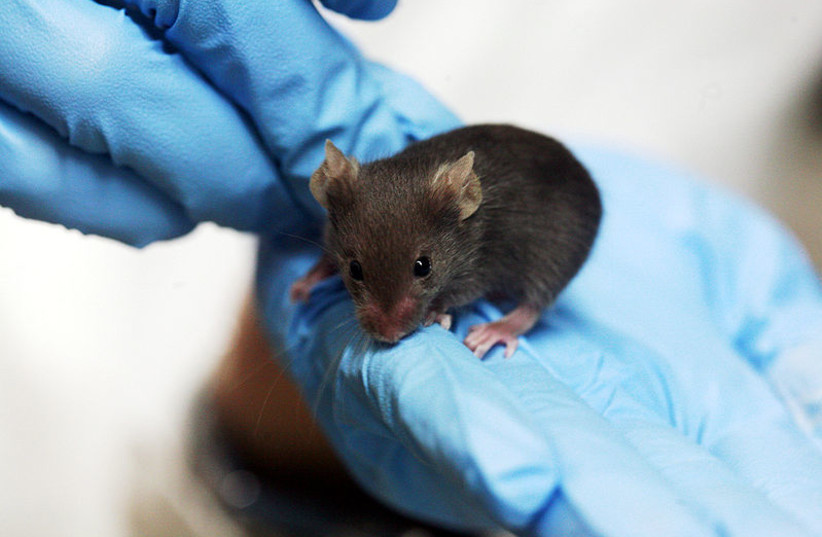The one billion obese people of the world dream of an innovation that would let them lose fat while eating all that they want. Impossible?
No, according to researchers at the Center for Cognition and Sociality (CCS) within the Institute for Basic Science (IBS) in South Korea. Led by institute director C. Justin Lee, they published their results in the journal Nature Metabolism under the title “Hypothalamic GABRA5-positive neurons control obesity via astrocytic GABA.”
They said that their discovery is a “significant development” that brings hope to obese people around the globe. The focus of their study, which brought new insights into the regulation of fat metabolism, was the star-shaped, non-neuronal cells in the brain known as astrocytes. The team announced successful lab experiments using the newly developed drug called KDS2010’, which allowed lab mice to successfully lose weight without the team restricting their diets.
How to lose weight while eating all you want
The complicated balance between food intake and energy expenditure is overseen by the hypothalamus – a structure within the brain that serves as the main link between the endocrine system and the nervous system. It maintains a stable state in the body called homeostasis.
While it has been known that the neurons in the lateral hypothalamus are connected to fat tissue and are involved in fat metabolism, their exact role in fat metabolism regulation remained a mystery. The researchers discovered a cluster of neurons in the hypothalamus that specifically express the receptor for the inhibitory neurotransmitter GABA (gamma-aminobutyric acid). This cluster has been found to be linked with the α5 subunit of the GABAA receptor and was hence named the GABRA5 cluster.

In a diet-induced obese mouse model, the researchers observed significant slowing in the pacemaker firing of the GABRA5 neurons. Researchers continued with the study by attempting to inhibit the activity of these GABRA5 neurons using chemo-genetic methods. This in turn caused a reduction in energy consumption in the brown fat tissue, leading to fat accumulation and weight gain. On the other hand, when the GABRA5 neurons in the hypothalamus were activated, the mice were able to achieve a successful weight reduction. This suggests that the GABRA5 neurons may act as a switch for weight regulation.
In a new surprising turn of events, the research team discovered that the astrocytes in the lateral hypothalamus regulate the activity of the GABRA5 neurons. The number and size of the reactive astrocytes are increased, and they begin to over-express the MAO-B enzyme, which plays a crucial role in the metabolism of neurotransmitters in the nervous system and is more predominantly expressed in reactive astrocytes. This results in the production of a large amount of tonic GABA that inhibits the surrounding GABRA5 neurons.
They also discovered that suppressing the expression of the MAO-B gene in reactive astrocytes can decrease GABA secretion, thereby reversing the undesirable inhibition of the GABRA5 neurons. Using this approach, the researchers were able to increase the heat production in the fat tissue of the obese mice, which allowed them to achieve weight loss even while consuming a high-calorie diet. This experimentally demonstrated that the MAO-B enzyme in reactive astrocytes can be an effective target for obesity treatment without compromising appetite.
Furthermore, a selective and reversible MAO-B inhibitor named KDS2010’, which was transferred to a biotech company Neurobiogen in 2019 and is currently undergoing phase-1 clinical trials was tested on an obese mouse model. The new drugs yielded very successful results, the team said. This demonstrated a substantial reduction in fat accumulation and weight without any impact on the amount of food intake.
Postdoctoral researcher S.A. Moonsun commented that “previous obesity treatments targeting the hypothalamus focused mainly on neuronal mechanisms related to appetite regulation.” She added that to overcome this, they focused on the non-neuronal astrocytes and identified that reactive astrocytes are the cause of obesity.”
Center director Lee concluded that “given that obesity has been designated by the World Health Organization as the ‘21st-century’s emerging infectious disease,’ we look to KDS2010 as a potential next-generation obesity treatment that could effectively combat obesity without suppressing appetite.”
